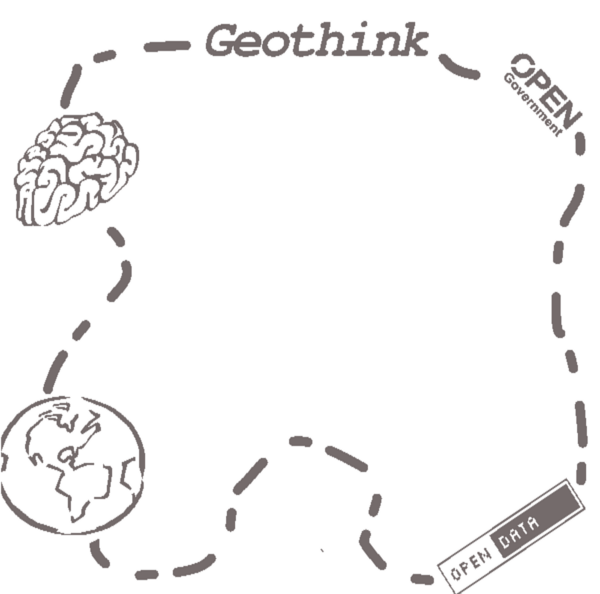By Matthew Tenney
We live in a hyperlocal world, using geospatial technologies in which we contribute, share, and visualize information about our location and activities. Using technologies like Google Maps and GPS-enabled cellphones, individuals tweet about potholes; their mobile apps deliver directions to the nearest coffee shop, whose reviews were contributed by individuals. Governments add to the geographic data stream by increasing accessibility of their data, like real time transportation information. The new mobile forms of map making, called the Geospatial Web 2.0, are important to Canada’s and could regain our lost ground as a world leader in map making and geographic technologies and lead government practices into the future. The emergence of these tools and services provides new capabilities for both non-experts and governments to collectively contribute–to crowdsource–geographic information to a host of social, economic and environmental challenges. The widespread accessibility of these capabilities is significant because it blurs distinctions between user and producer of geographic information and allows citizens to volunteer geographic information with their locations and experiences.
Geothink is a 5-year partnership research grant funded by SSHRC and is one of only 20 grants awarded this year. The initiative is composed of 26 researchers and 30 partners, that range from city officials, business leaders, and academics across Canada. Our primary focus is on the implications of increasing two-way exchanges of geographic information between citizens and governments and the way in which technology shapes, and is shaped by, this exchange.
The primary goal of Geothink is captured in five broad objectives as
follows:
1) Identify best practices development and usage of Geoweb in government
2) Explicate paths for local governments to leverage the Geoweb to
communicate directly with concerned parties.
3) Investigate the social, economic and legal forces shaping means of
governance.
4) Establish a sustainable partner network of regular communication in
which ideas are bottom up and dynamically refined.
5) Train the next generation of leaders who will be highly technically
competent and cognizant of impacts of Geoweb technologies on governance
processes and citizen relationships.
As the grant progresses we will share necessary information for people to better understand and use these technologies for future projects and hopefully lead to significant changes in government practices in light of the research produced by the Geothink team.
We also would like to invite both cities and citizens to participate in any of the activities of Geothink including suggestions on how best to use these new digital technologies and the kind of data that would be most useful to provide.
